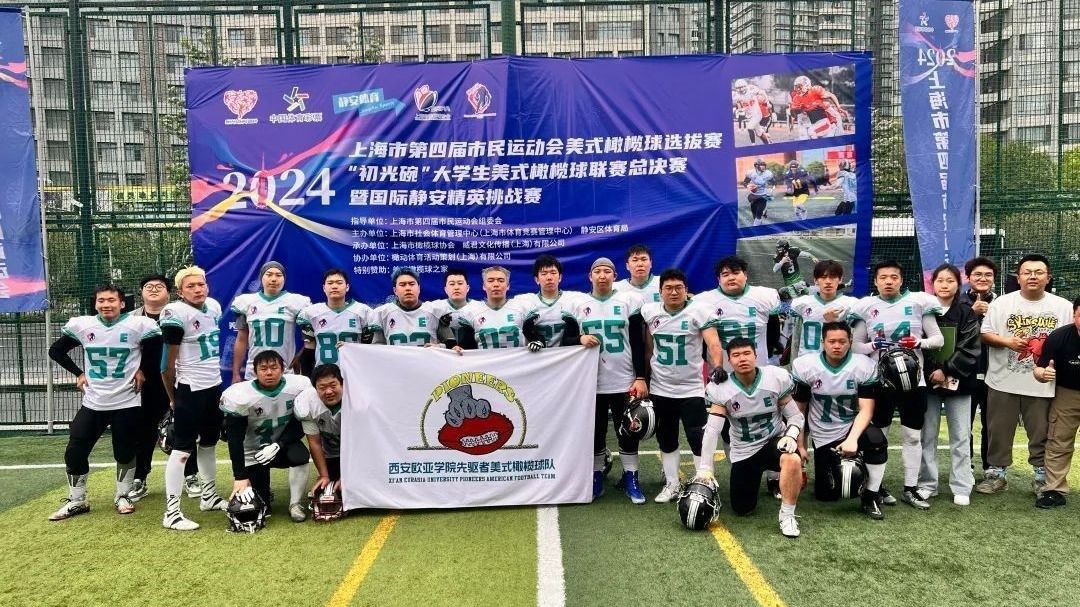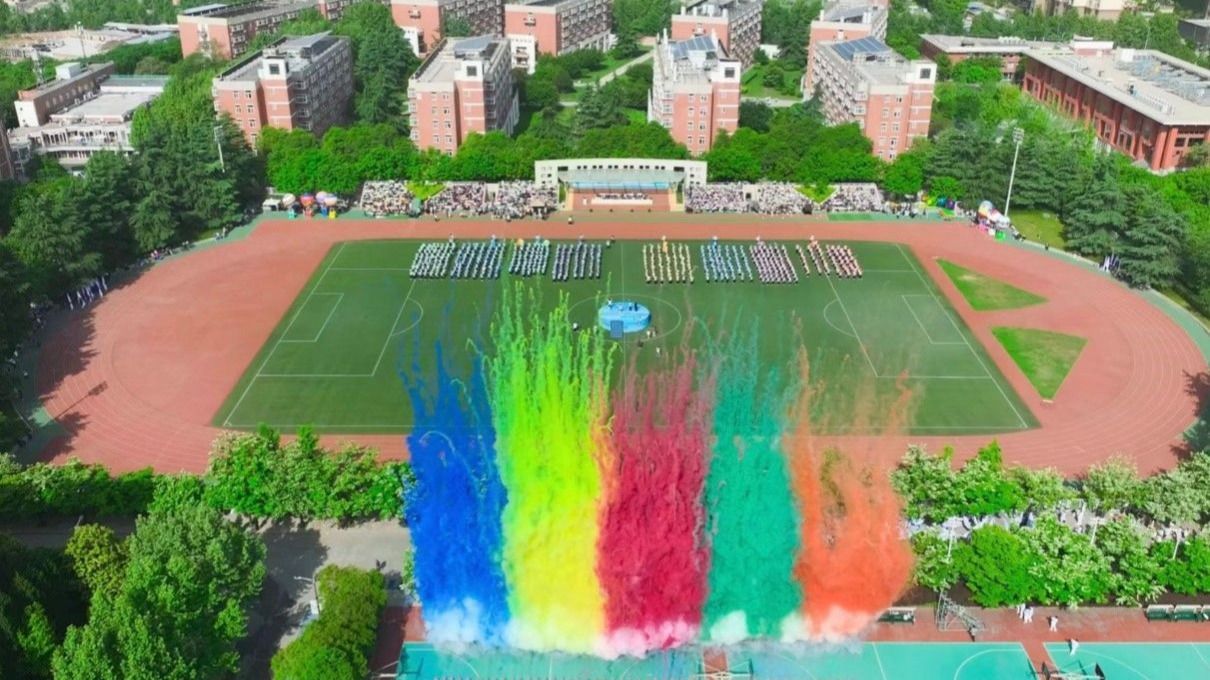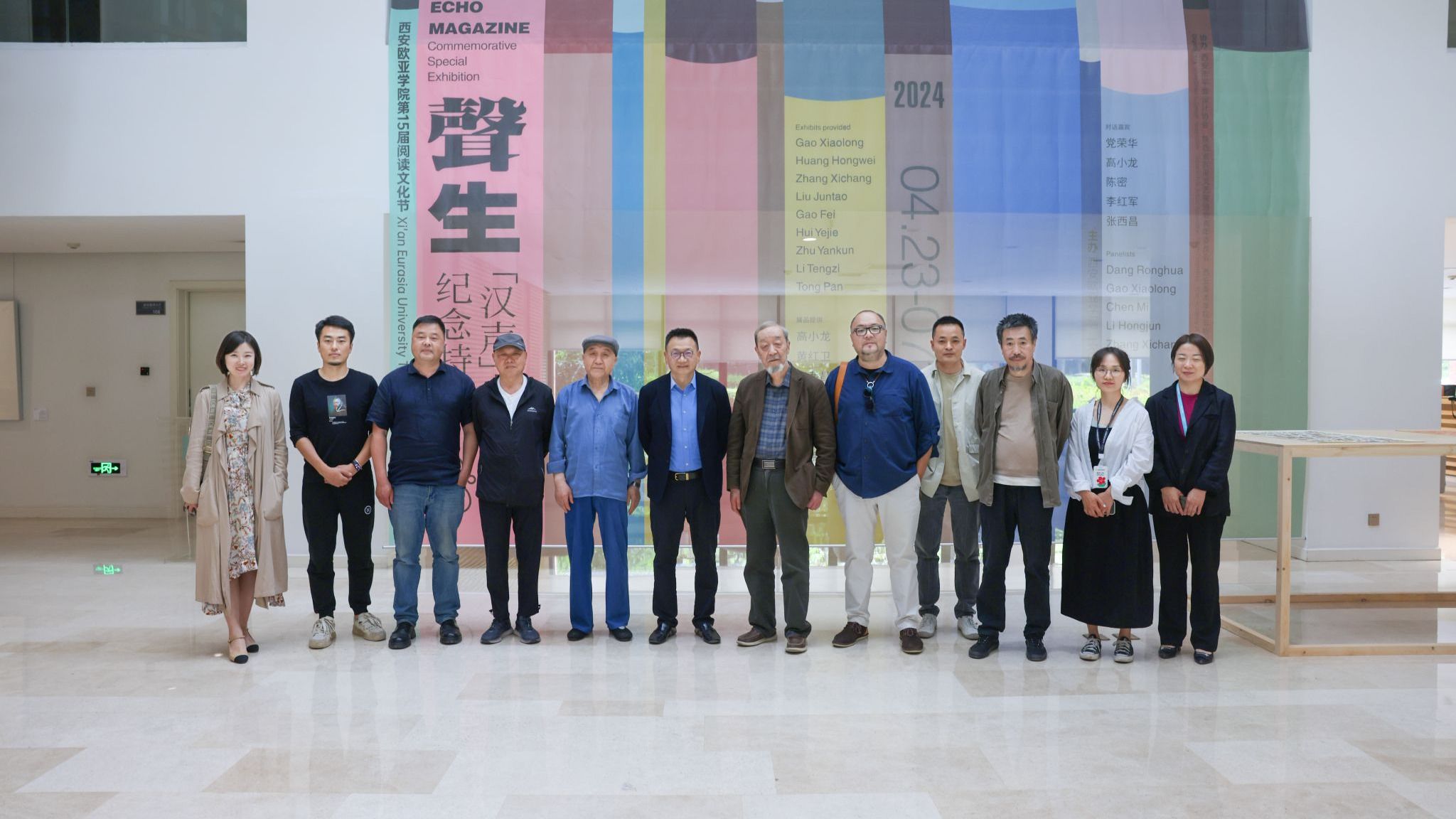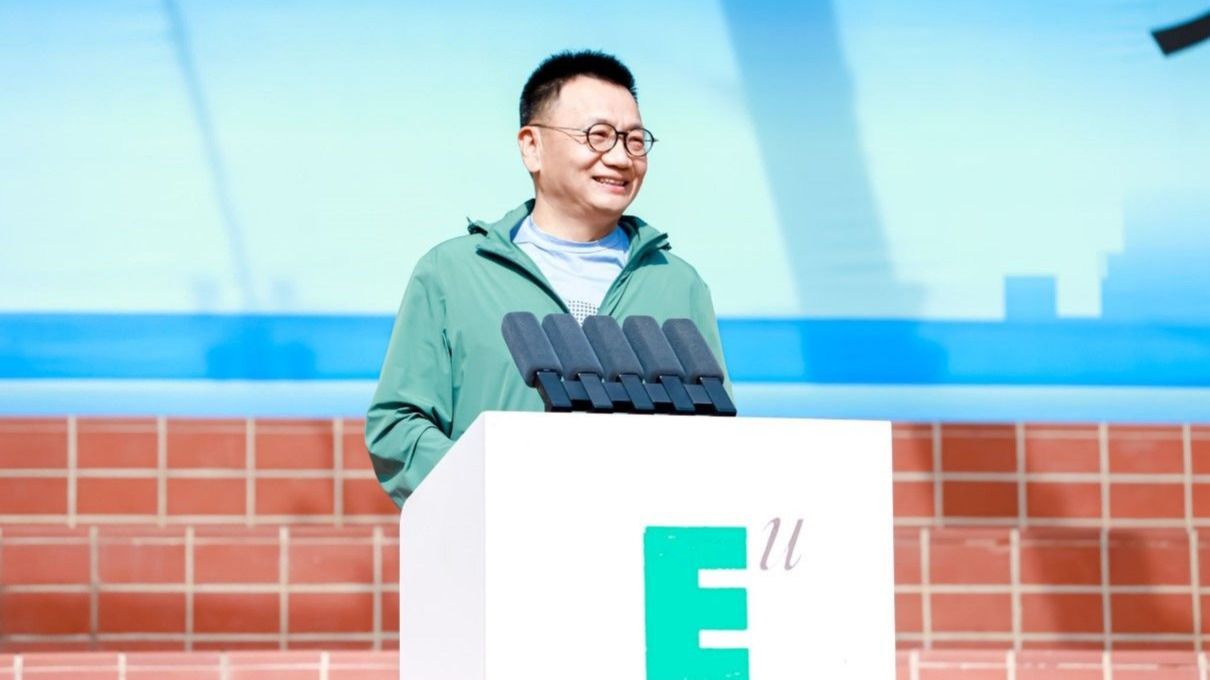From October 21 to 22, Xi'an Eurasia University held its fifth Education and Teaching Conference. The conference, themed "Focus on the Student-Centered Teaching Approach and Enhance the Quality of Applied Professionals Education," included a main forum, a series of themed sub-forums, and academic report meetings. The conference comprehensively summarized the university's experience in educational and teaching reforms and outlined the ideas for the next stage of teaching reforms.

(Fig. 1) Professor Liu Jin, President of Xi'an Eurasia University, Moderated the Conference
Many distinguished guests attended the conference, including Yang Peng, Deputy Director of the Higher Education Division of the Shaanxi Provincial Education Department, Professor Chang Tongshan, Director of the Institutional Research and Academic Planning at the University of California (UC) Office of the President, Professor Zhou Xianrong, Director of the Academic Affairs Office of East China Normal University, Professor Xie Xiaoqing from Beijing Language and Culture University, Professor Lu Bainian and Professor Yin Jian'an, Distinguished Professors of Xi'an Eurasia University, as well as Professor Wu Xiaoguang, Senior Advisor of the International Development Committee of Xi'an Eurasia University. Over 1600 participants, including experts and consultants from the university and its colleges, representatives from partner enterprises, faculty and staff, and student representatives, attended the conference. The conference was moderated by Professor Liu Jin, Vice President of the university.
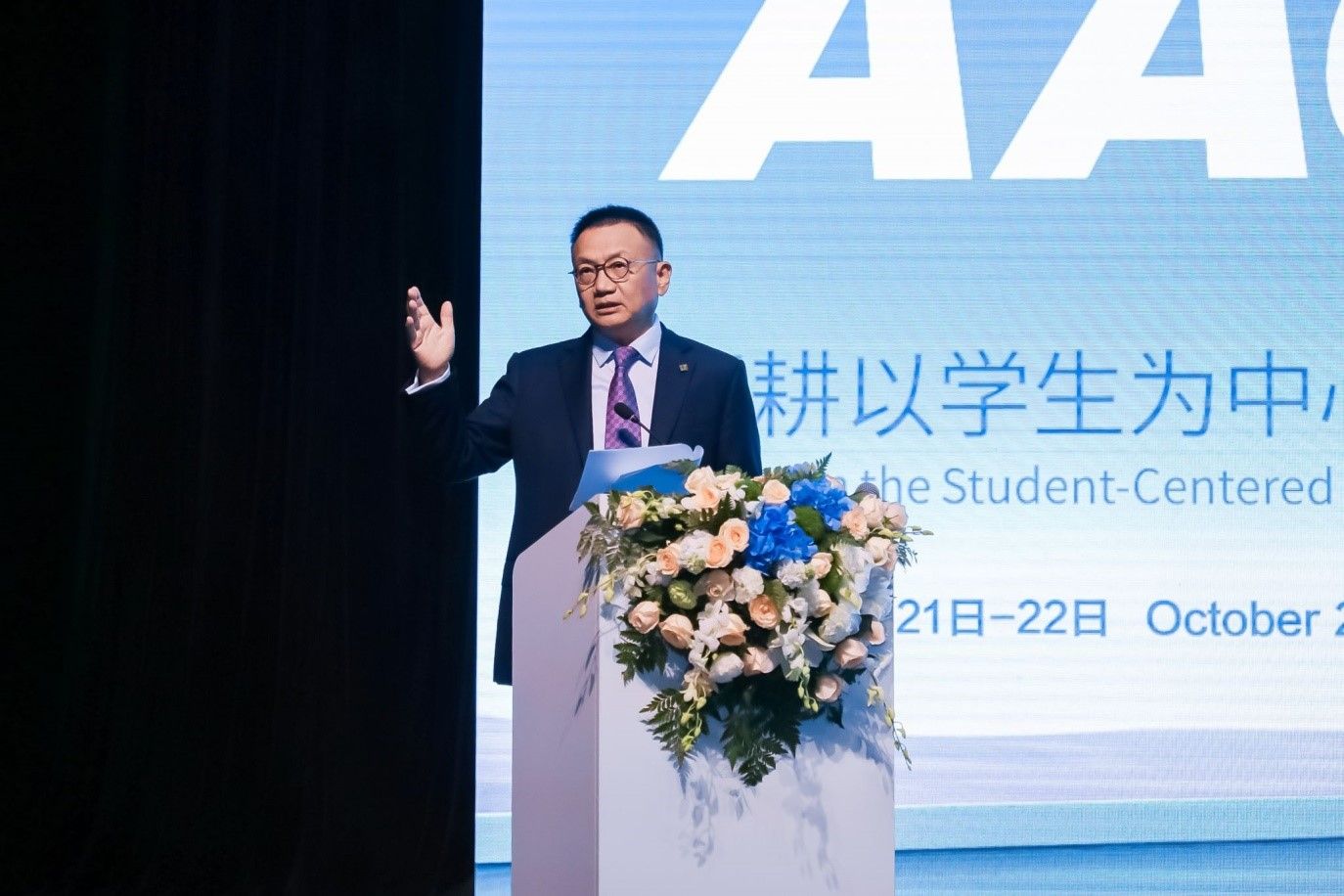
(Fig. 2) Professor Hu Jianbo, Chairman of Xi'an Eurasia University, Delivered a Speech
Professor Hu Jianbo, Chairman of Xi'an Eurasia University, said in his speech that the university has always adhered to the "student-centered" direction in education and teaching reforms, aligning the offered disciplines and majors with the needs of industrial transformation. This has helped students achieve comprehensive value-added development in physical, mental, vocational, and social aspects, steadily improving their employment quality. He pointed out that in the future, the university will adhere to the "student-centered" educational philosophy and implement an adaptive and comprehensive education quality concept while exploring the path of innovative development of private higher education institutions. The university will also integrate the design of various educational activities, continuously optimize the integrated education system of "admission, cultivation, employment," and the coordinated education model of "colleges, communities, associations." Furthermore, it will strive to create a management and resource support system that aligns with the "student-centered" concept, forming a resource support model that is affordable, sustainable, highly integrated, and effective.

(Fig. 3) Scene at the Main Forum
Focus on Student Growth, Collaboratively Research the Quality of Education

(Fig. 4) Professor Zhang Lefang, Vice President of Xi'an Eurasia University, Delivered a Keynote Speech
The quality of talent cultivation is the lifeline of a university. At the main forum of the conference, Professor Zhang Le Fang, Vice President of Xi'an Eurasia University, delivered a speech with the theme "Focus on the Student-Centered Teaching Approach and Enhance the Quality of Applied Professionals Education." She summarized the university's experience and difficulties encountered in educational and teaching reforms over the past 7 years since the 4th Education and Teaching Conference. Based on the aspects of educational philosophy, educational goals, educational models, educational strategies, and quality assurance, she introduced the innovative ideas and measures that the university has taken to deepen educational and teaching reforms.
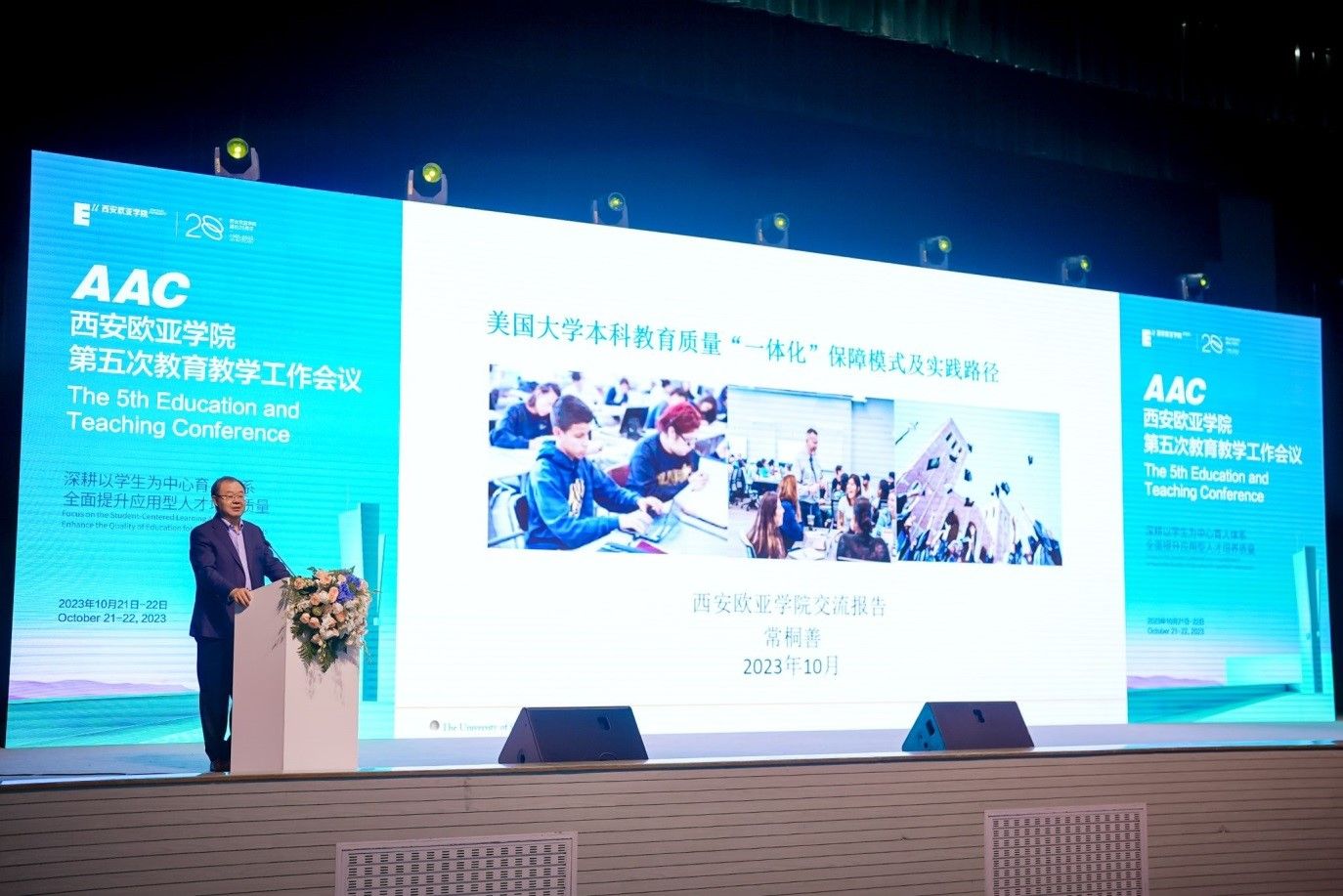
(Fig. 5) Special Report by Professor Chang Tongshan
What defines the quality of undergraduate education? How to evaluate the education quality of Xi'an Eurasia University? Ensuring and enhancing the quality of higher education is the top priority for university development. Professor Chang Tongshan, Director of Institutional Research and Academic Planning at the UC Office of the President, focused on these two questions in his report titled "Integrated Quality Assurance Model and Practical Path of Undergraduate Education in American Universities."He shared his reflections on undergraduate education quality assessment in the United States over the past two decades, and based on his practical experience participating in projects at the Institute of Eurasia Education and Innovation, he also shared his personal insights on the tangible achievements of Xi'an Eurasia University in exploring the path to improving educational quality. He believes that regardless of the country, it is necessary to focus on admission, cultivation, and evaluation to effectively establish an integrated model for guaranteeing teaching quality.
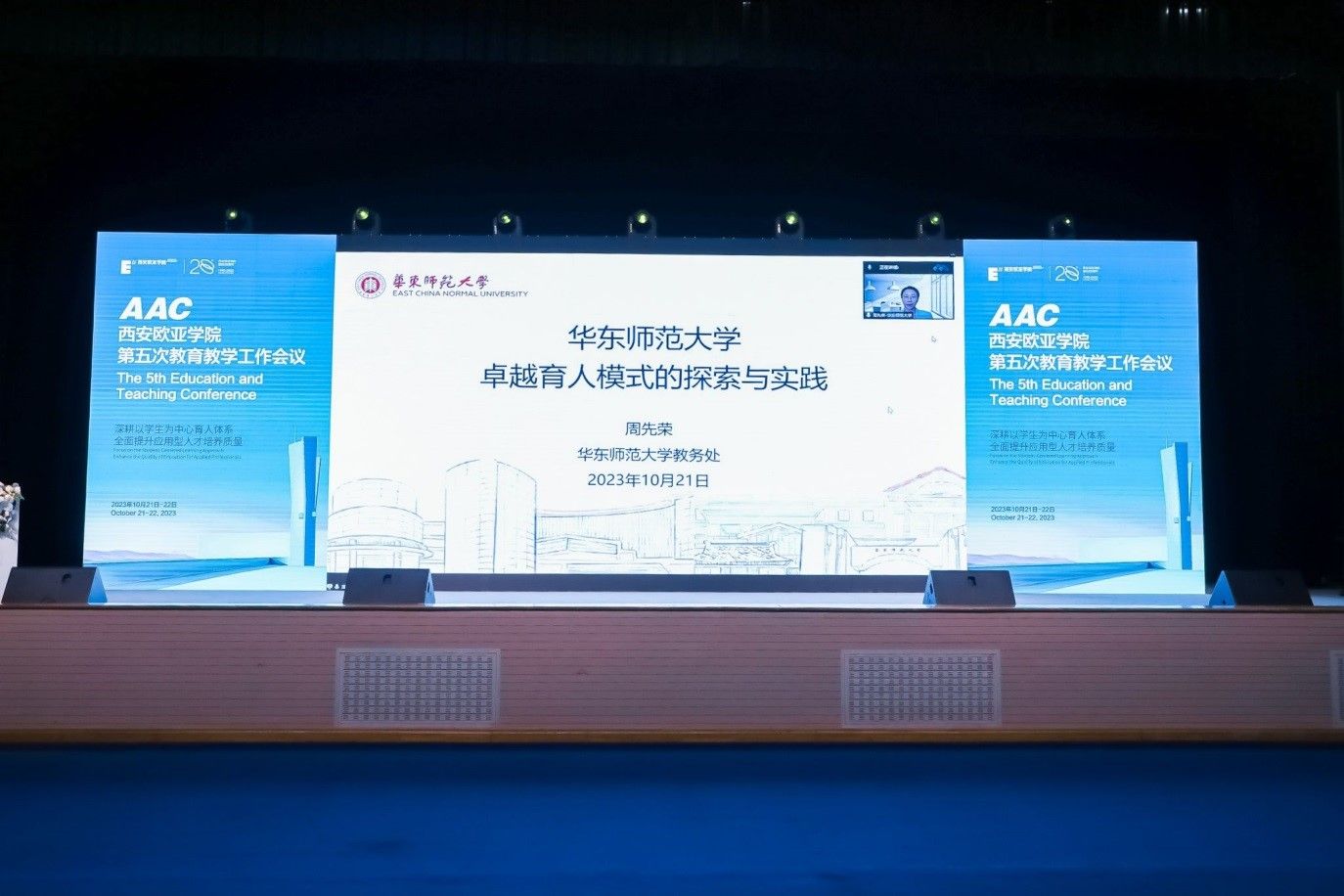
(Fig. 6) Professor Zhou Xianrong Delivered a Special Report Remotely
With an increasingly competitive job market, cultivating students' innovative spirit and practical abilities is an important aspect of aligning university education with societal needs. Professor Zhou Xianrong, Director of the Academic Affairs Office at East China Normal University (ECNU), delivered a speech on the subject of "Exploration and Practice of the Excellence Education Model at ECNU." She introduced ECNU's educational achievements of transitioning from 1.0 to 3.0 in talent cultivation and the preliminary vision for progressing to 4.0, aligning with ECNU's three missions of "education, civilization, and development" and following the stages of "cultivating the root, building the foundation, and integrating knowledge." She emphasized that in today's era, possessing singular and fragmented knowledge no longer confers any advantages. Hence, educational institutions must transcend boundaries and employ a blend of principles and flexibility, striving to maximize and excel in the work of excellence education.
Advocate for Full Participation, Build a Culture of Quality Together
In order to make the idea of improving the quality of education and teaching a self-driven pursuit and cultural consciousness for the entire faculty and student body, the conference also included six sub-forums: Business, Humanities, Engineering, Vocational Education, General Education, and Students Forums. The university leaders participated in the exchanges and discussions of each discipline's sub-forum.
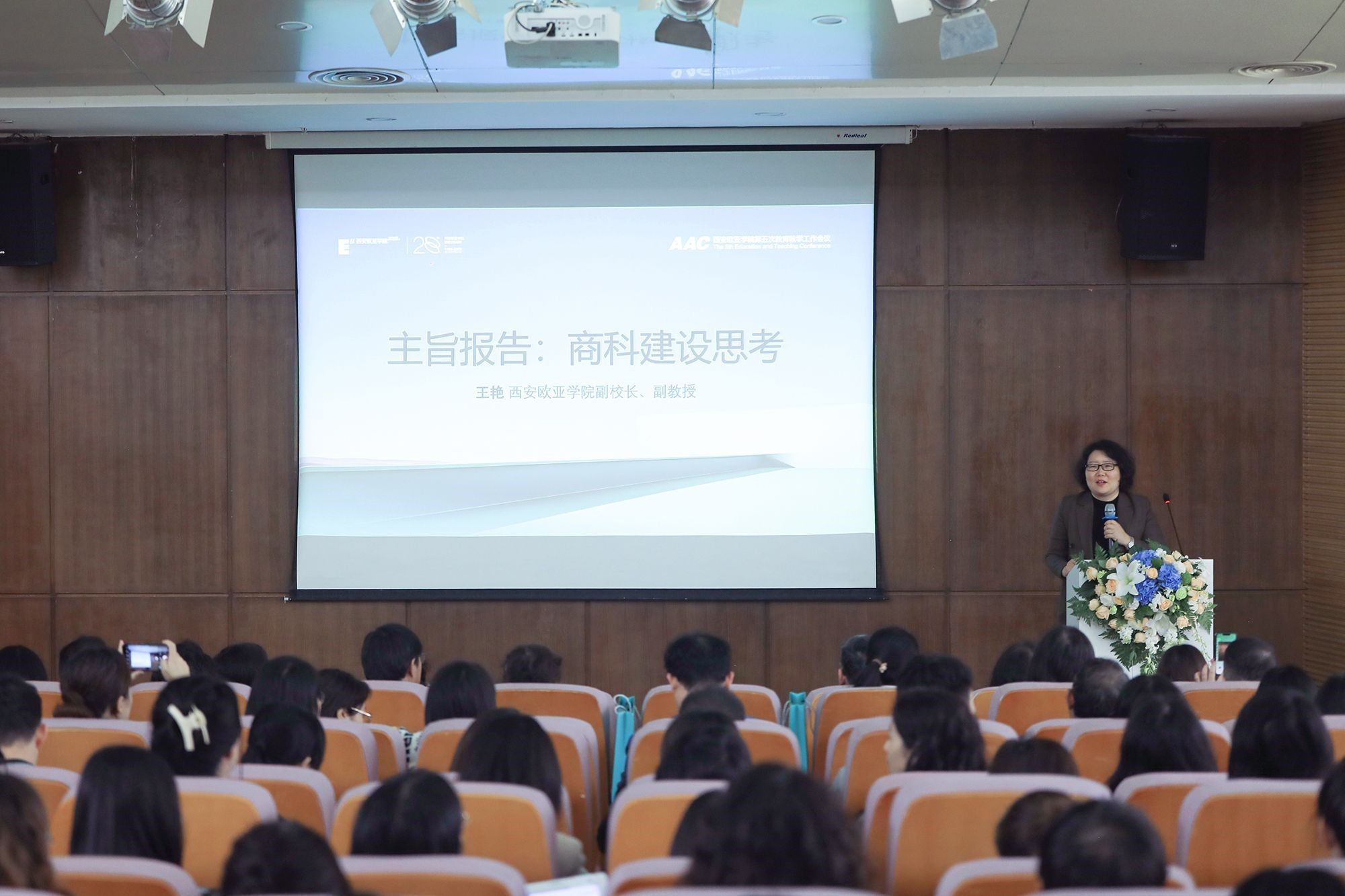
(Fig. 7) Business Sub-forum
The Business Sub-forum, jointly organized by the School of Business Administration, School of Accounting, and School of Finance and Data Science, focused on the theme "New Definition, New Connections, New Business Discipline." With an international perspective, it explored the teaching and learning of the new business discipline from the aspects of industry-education integration and research-education integration.
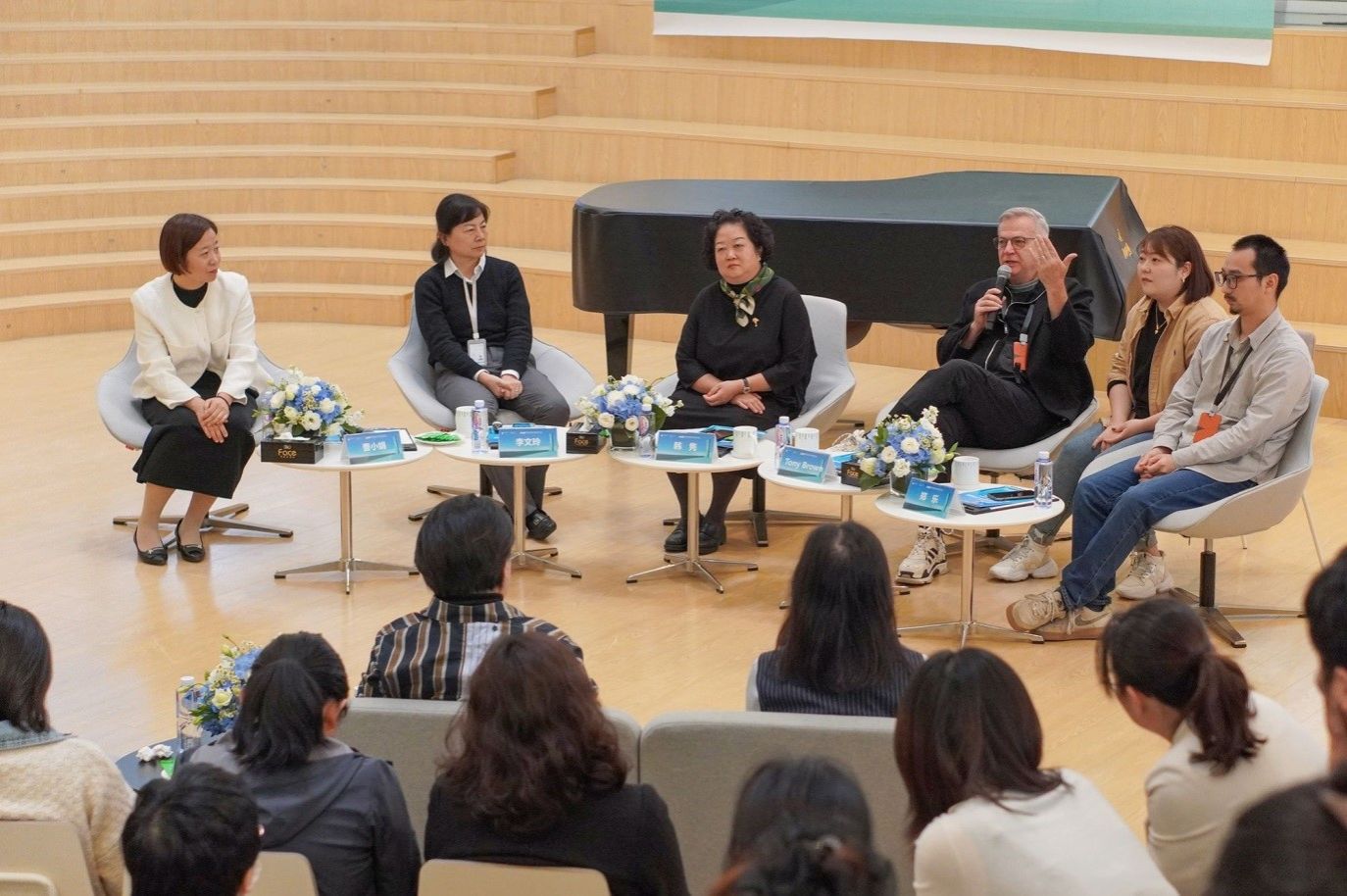
(Fig. 8) Humanities Sub-forum
The Humanities Sub-forum was held in the form of a round-table forum. Under the theme of "From an Academic Perspective: How to Help Every Student Learn," mentors from the School of Humanities and Education, EAaD School, and School of Culture and Media shared the teaching achievements of 9 workshops.
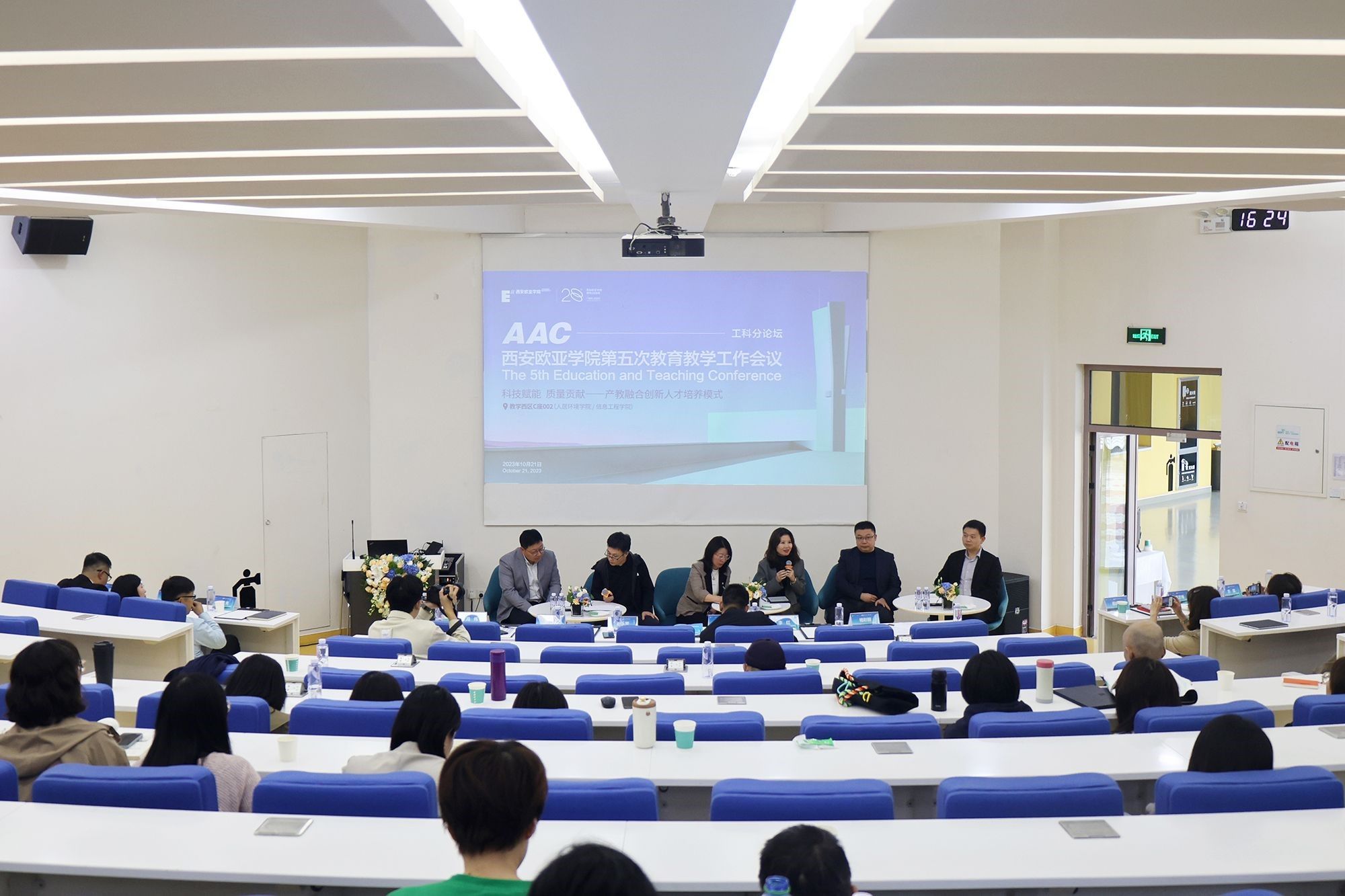
(Fig. 9) Engineering Sub-forum
The Engineering Sub-forum, with the theme "Technology Empowerment, Quality Contribution: Innovation in Talent Cultivation with Industry-Education Integration," was hosted by the School of Human Settlements and Civil Engineering and the School of Information Engineering. It discussed the talent requirements and talent cultivation situation in fields such as intelligent construction and cybersecurity.
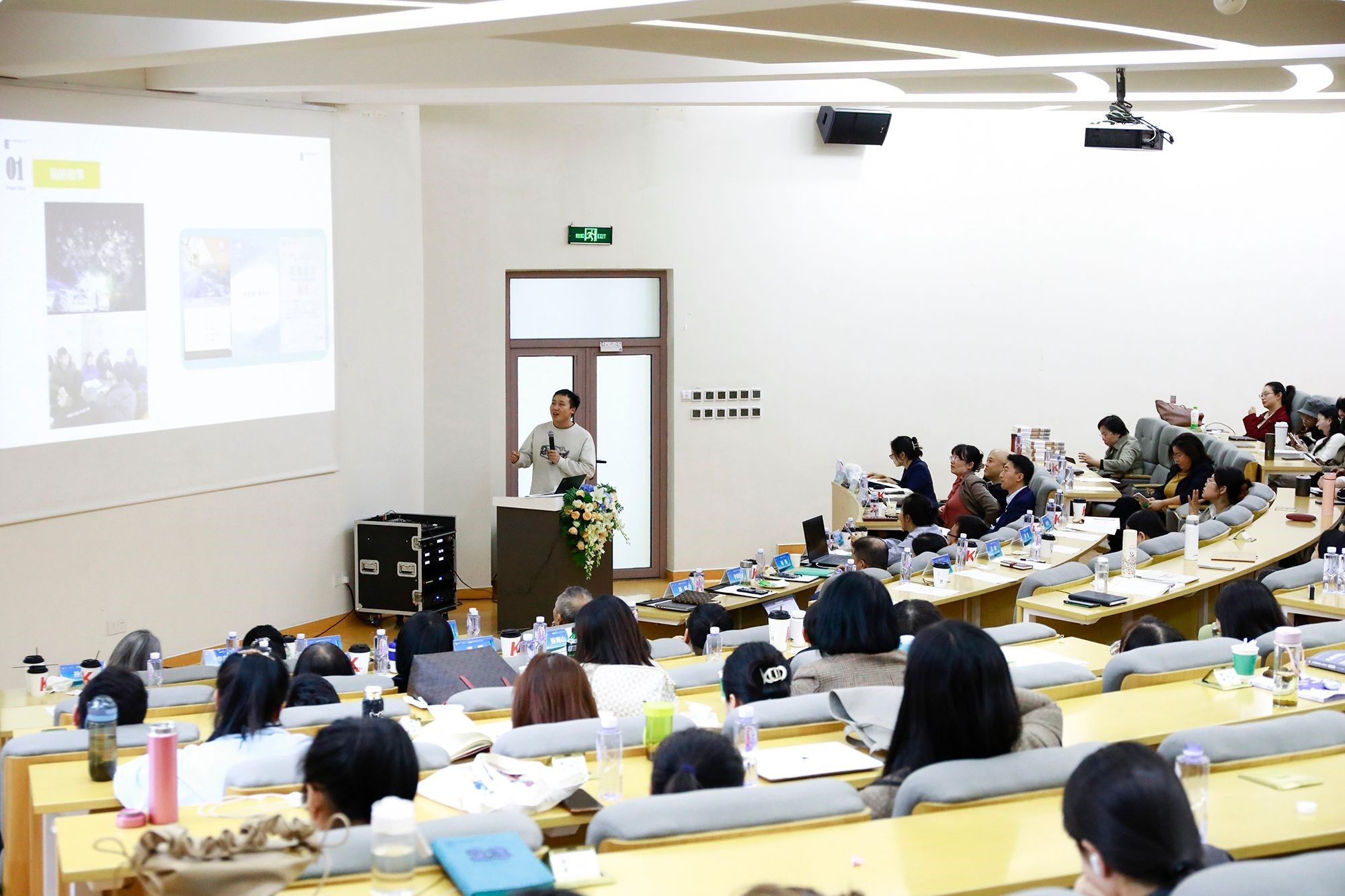
(Fig. 10) Vocational Education Sub-forum
The Vocational Education Sub-forum focused on the theme of "Vocational Education Reform" and was hosted by the School of Higher Vocational Education. Guests from academia discussed the reform path of talent cultivation, while industry experts provided insights on industry-education integration in talent development based on the characteristics of specific industries.

(Fig. 11) General Education Sub-forum
The General Education Sub-forum, hosted by the School of General Education and the International Language Center, focused on the theme "The Implementation of Core General Competencies in Specialized and Foundational Courses." Faculty representatives from each secondary school participated in the sub-forum discussions.
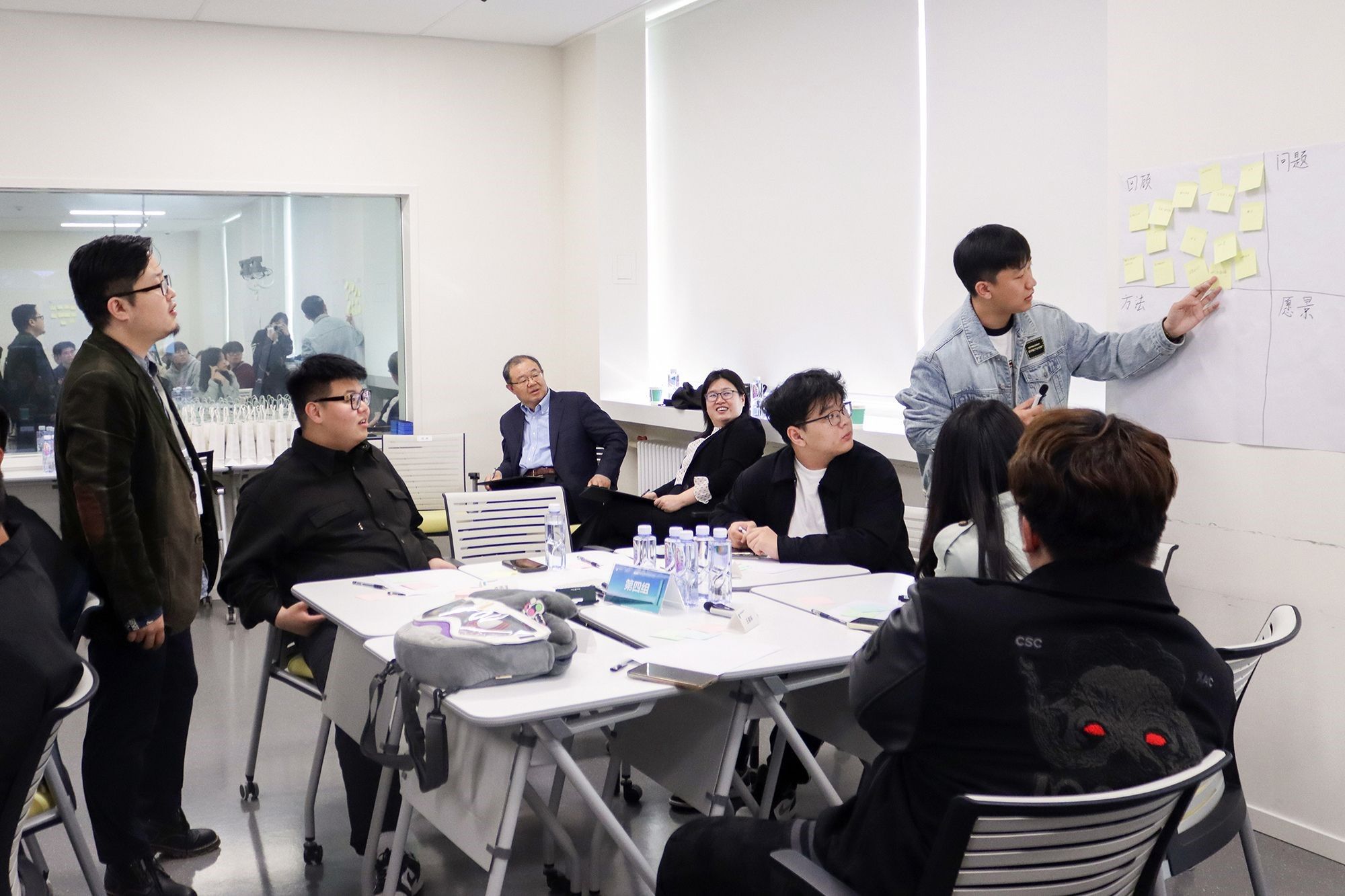
(Fig. 12) Students Sub-forum
The Students Forum was a new addition to the conference this year. It was set up to take in student needs and suggestions, thus enabling students to fully participate in educational and teaching work. The theme of the sub-forum was "Exploration & Empowerment: Focusing on Student Needs and Facilitating Deep Learning." Zhang Na, Director of the Department of Academic Affairs at Xi'an Eurasia University, delivered a special report titled "Achievements and Review of Educational and Teaching Reforms." Subsequently, Liu Xin, the Director of the Humanities and Art Course Center of the School of General Education, highlighted the training objectives and operational procedures of the newly established student workshop. After listening to the reports, student representatives gave presentations on the results.
Explore Special Education Approaches by Learning from Others
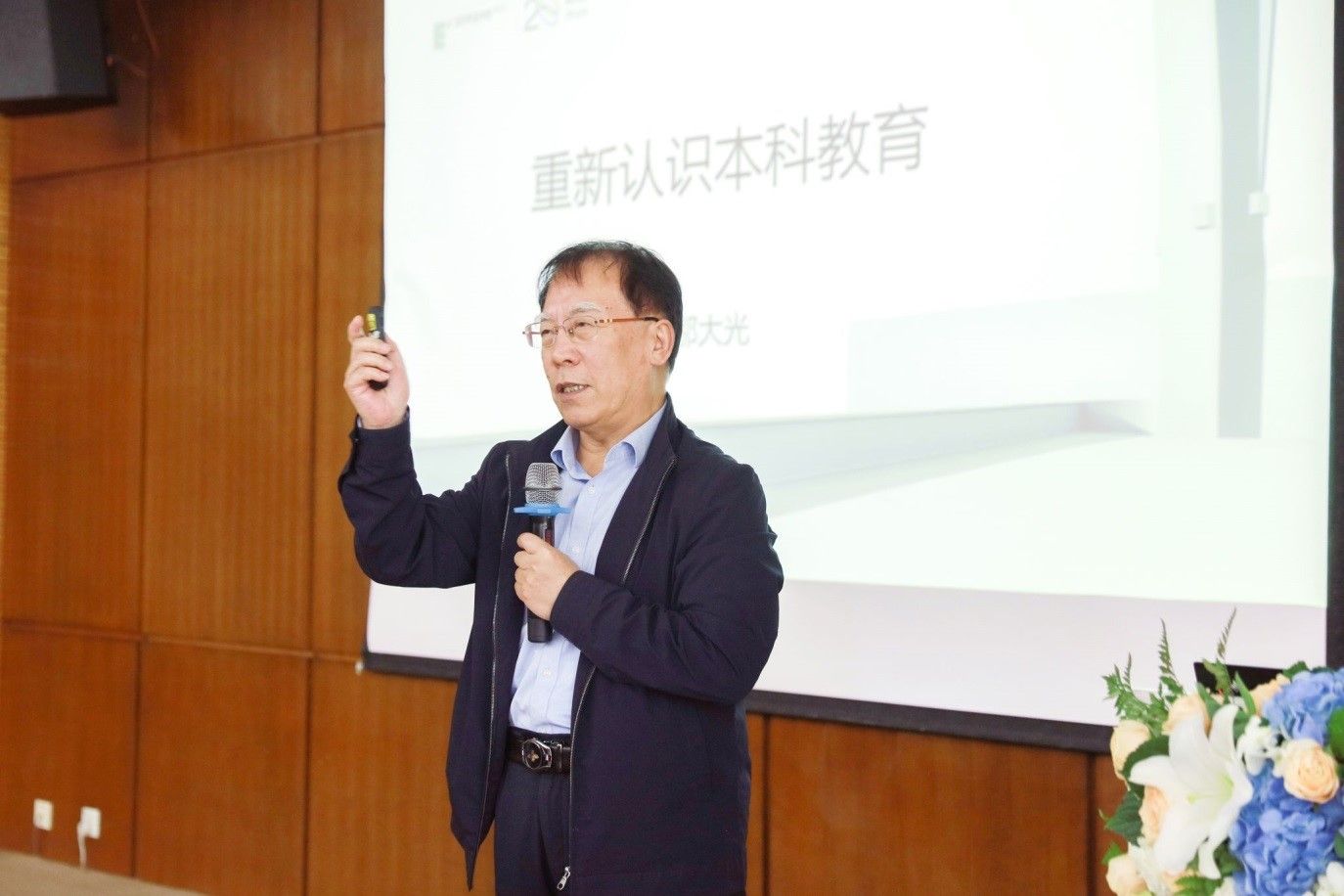
(Fig. 13) Special Report by Professor Wu Daguang
How should undergraduate education be done? How can it be done well? In the face of future educational reform goals, Xi'an Eurasia University actively seeks guidance and suggestions from experts. On the afternoon of October 22, an academic report meeting was held. Professor Wu Daguang, former Vice President and doctoral supervisor of Xiamen University, Professor Zhou Limin, Chair Professor of the School of System Design and Intelligent Manufacturing at Southern University of Science and Technology, Professor Li Yadong, Vice Chairman and Secretary-General of the Chinese Network of Internal Quality Assurance Agencies in Higher Education (CIQA), and Professor Sun Jianrong, Vice President of Xi'an Eurasia University were invited to give reports. The meeting was moderated by Professor Liu Jin, Vice President of the university.
In his report titled "Reconsidering Undergraduate Education," Professor Wu Daguang highlighted three key points about undergraduate education: the importance of "strong teachers for strong education," the path to achieving high-quality development through good courses, and the need for breakthroughs in general education beyond specialized courses. According to Professor Wu, a good teacher who delivers an excellent course should not only teach students knowledge and skills but also teach them thinking patterns and paradigms. Connecting these answers will reveal what truly constitutes good undergraduate education.
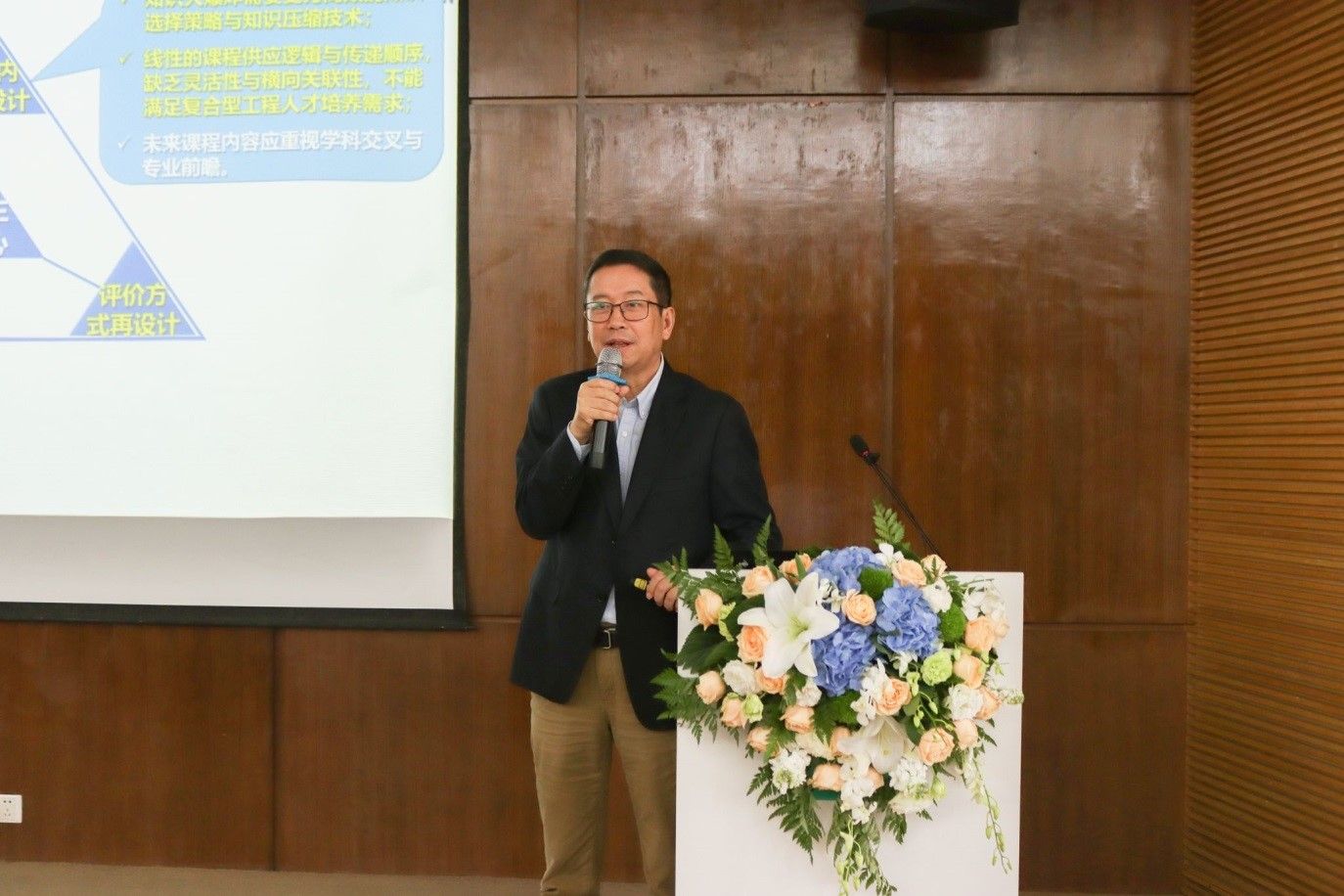
(Fig. 14) Special Report by Professor Zhou Limin
With the deepening of educational reform, interdisciplinary and project-based learning have become increasingly important in improving the quality of education. In his report titled "Focusing Simultaneously on Knowledge and Skills and Returning to the Fundamentals of Education: Synchronous Development of Knowledge and Skills through Multidisciplinary Integration," Professor Zhou Limin detailed the multidisciplinary integration and synchronous cultivation model at the Southern University of Science and Technology. This model, designed in the context of rapid changes in emerging technologies, presents a transformed framework for teaching methods, content, and assessment by prioritizing interdisciplinary and forward-thinking perspectives.
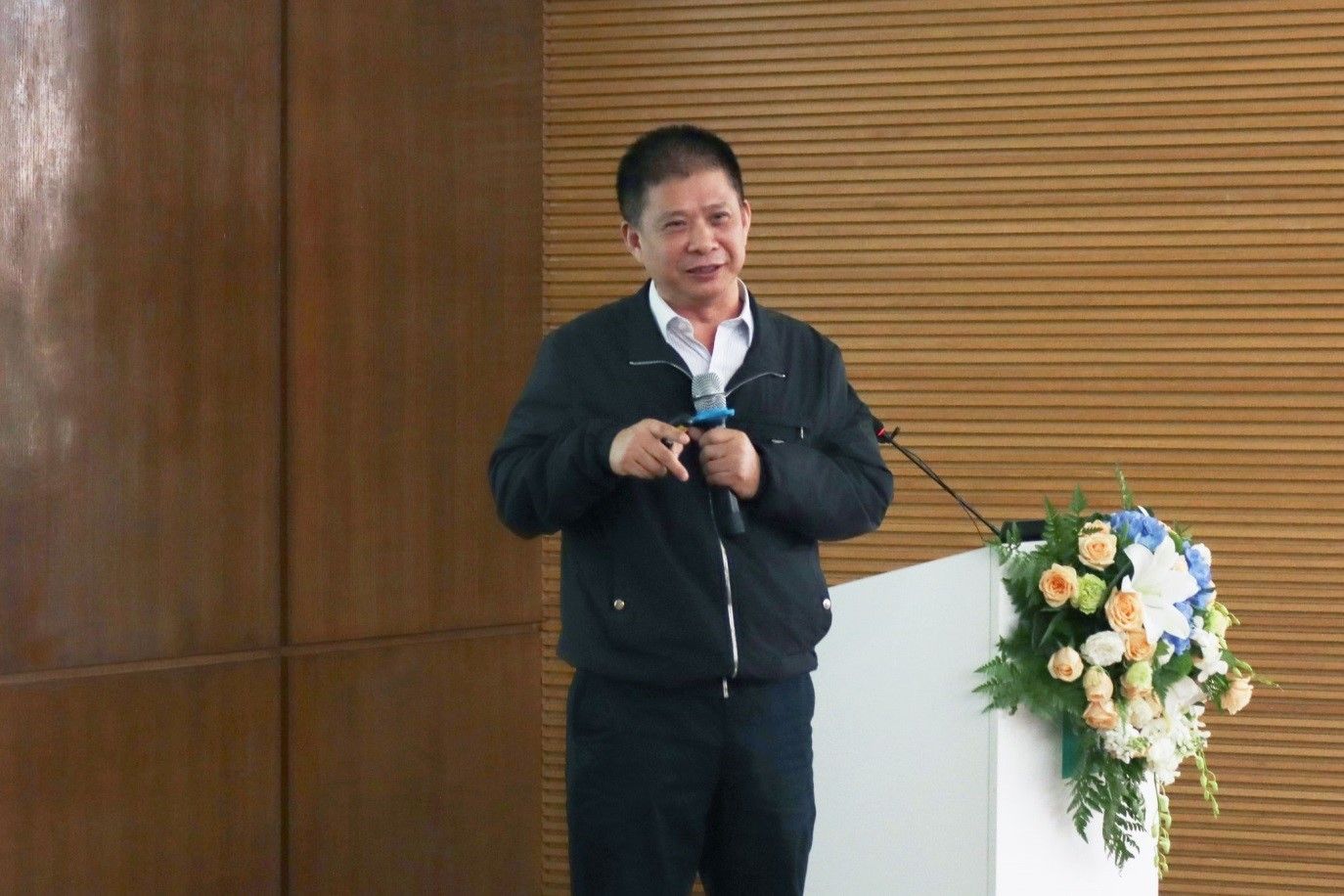
(Fig. 15) Special Report by Professor Li Yadong
The value of educational quality assessment lies in continuous improvement and the formation of a self-aware quality culture. Professor Li Yadong delivered a report titled "The Construction of Higher Education Quality Assurance System Guided by a New Round of Evaluation and Assessment." He expounded on the construction of the higher education quality assurance system under the guidance of a new round of evaluation and assessment from three aspects: new progress, new norms, and new requirements. He emphasized that the biggest change in the new round of evaluation and assessment is the emphasis on "quality culture." This signifies that quality assurance should not be an emergency measure but rather an ongoing effort in regular practice.
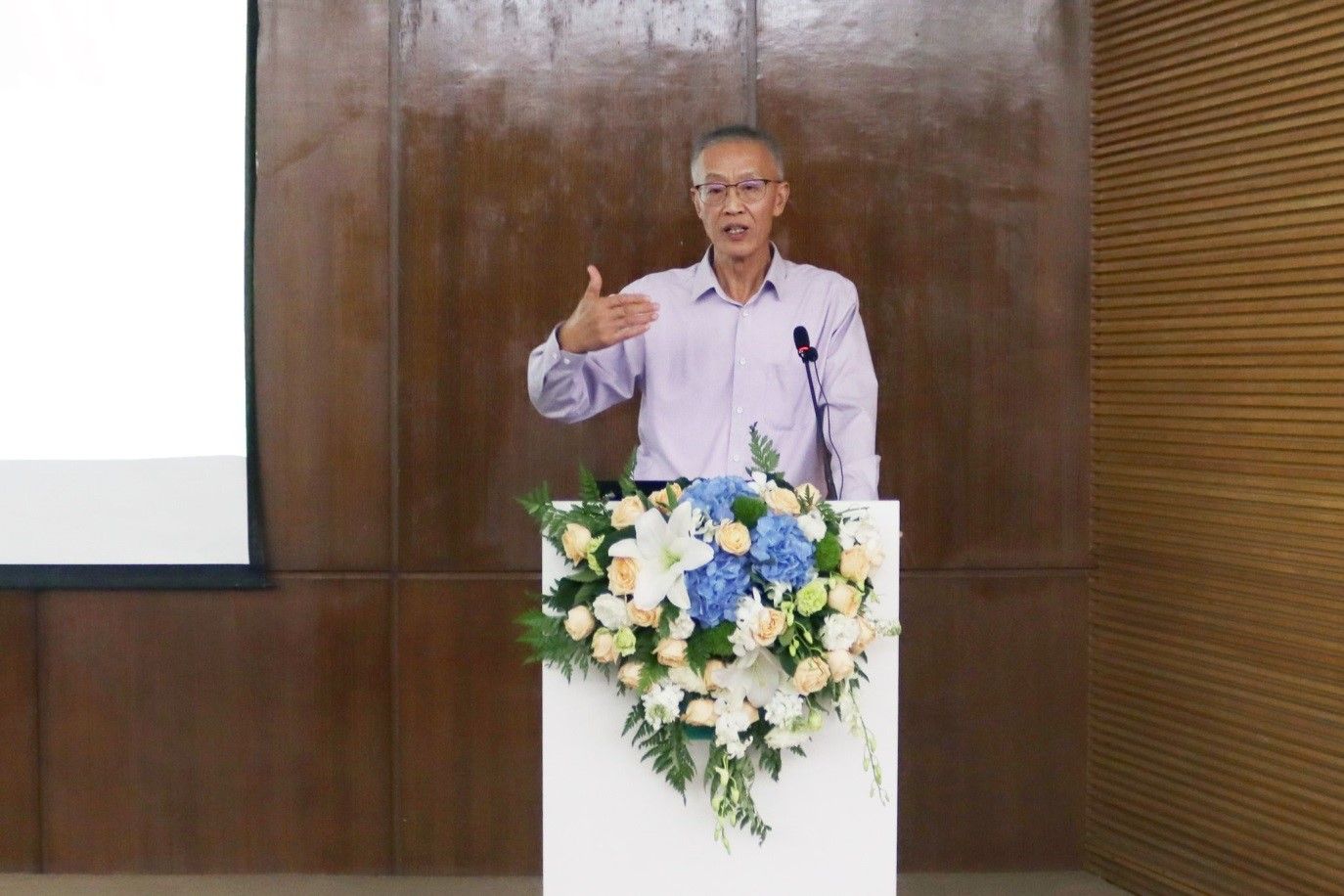
(Fig. 16) Special Report by Professor Sun Jianrong
After listening to the reports of all the experts, Professor Sun Jianrong also shared the vision planning and practical experience of Xi'an Eurasia University's "Local Internationalization" strategy. "Local Internationalization" is one of the six strategic priorities for Eurasia during the 14th Five-Year Plan period. The report analyzed the commonalities and distinctions of internationalization in higher education in China and the United States and proposed three dimensions to consider internationalization: benchmarks, beneficiaries, and a balance of pros and cons. Professor Sun emphasized that when implementing internationalization locally, the university always adheres to strategic design and resource allocation from the students' perspective, ensuring that the student-centered concept and humanistic values are consistently upheld.
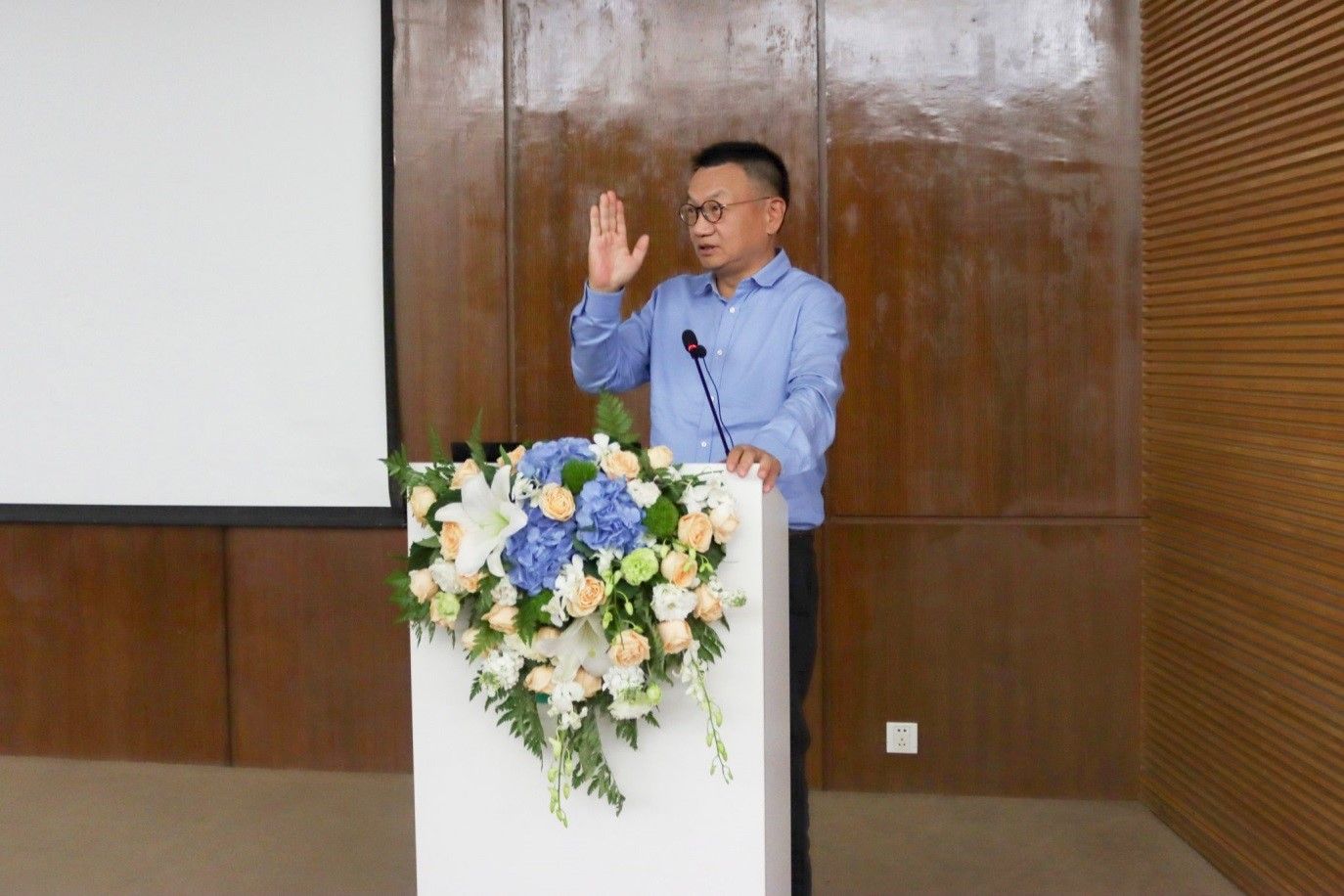
(Fig. 17) Concluding Remarks by Professor Hu Jianbo
The brilliant academic reports brought about an intellectual collision of diverse ideas. At the end of the event, we stand at a new starting point for a new chapter. In his concluding remarks, Professor Hu Jianbo summarized the future development direction of Xi’an Eurasia University using the school motto "Pluralitas in unitatem." He stated, "We must adhere to the education policies of the Party and the country while maintaining an open mind and embracing diversity and integration. We should learn from advanced experiences around the world, and combine them with the unique qualities of Xi'an Eurasia University, to venture on an innovative path of our own."



